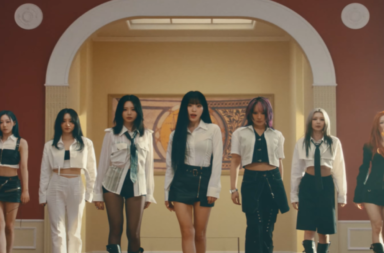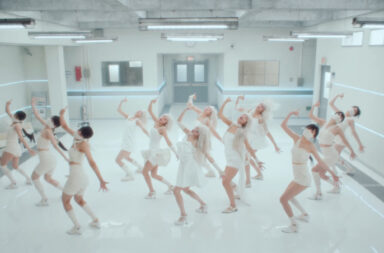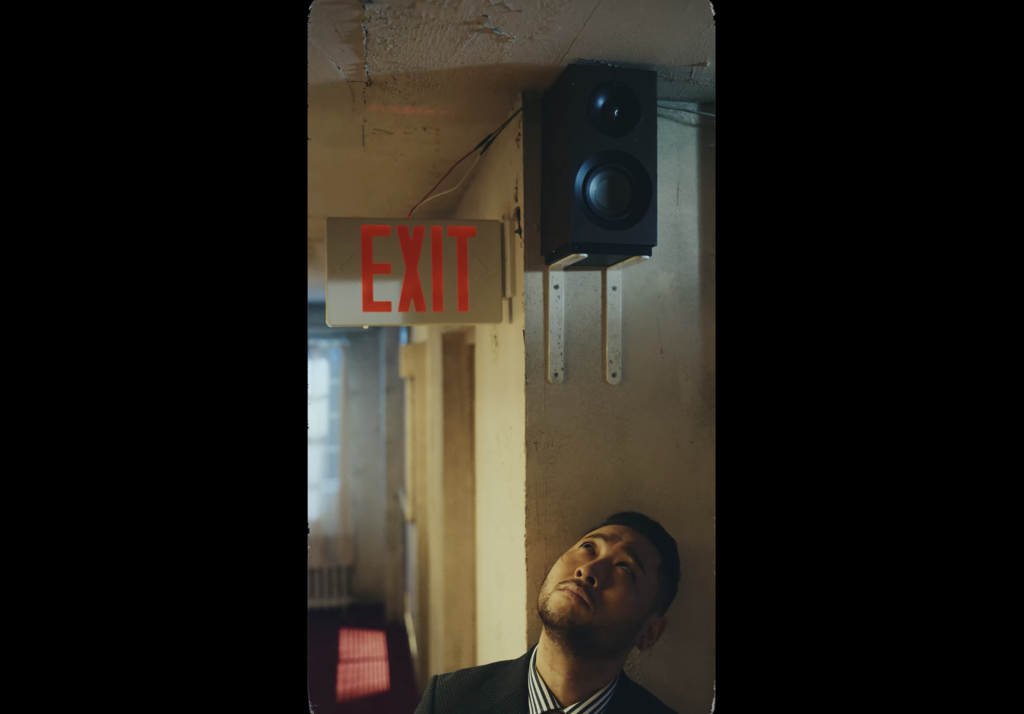
When you first think of Epik High, your mind might stumble on Tablo’s creative lyrics, Mithra’s deep, resonant voice, or Tukutz’ weird-but-normal antics. Or, you’ll acknowledge their rich discography, which finds its roots all the way back in 2003. Lately though, what comes to mind is their unique array of featuring artists, which has increasingly become a marketing standpoint for the hip-hop trio. Indeed, with the news of an album release came with it the mystery behind the identities of their next lending voices.
This time, the trio showcased their tracklist and feature list simultaneously, keeping us on edge as they revealed the titles and faces bit by bit. For their first mellow R&B title track “Based on a True Story,” they brought on Heize; for the suave yet haunting trap influenced “Rosario,” they collaborated with CL… and Zico, which predictably wrought on some controversy from fans and the public alike. Many have had mixed feelings regarding his participation in a title track, let alone in an Epik High album. After all, while Epik High has consistently exerted creative freedom for their musicality, the scandals associated with Zico from back in 2019 are still difficult for the public to forget. It brought to question the growing, blurry boundaries between music and controversy today, as people are split between prioritizing one or the other.
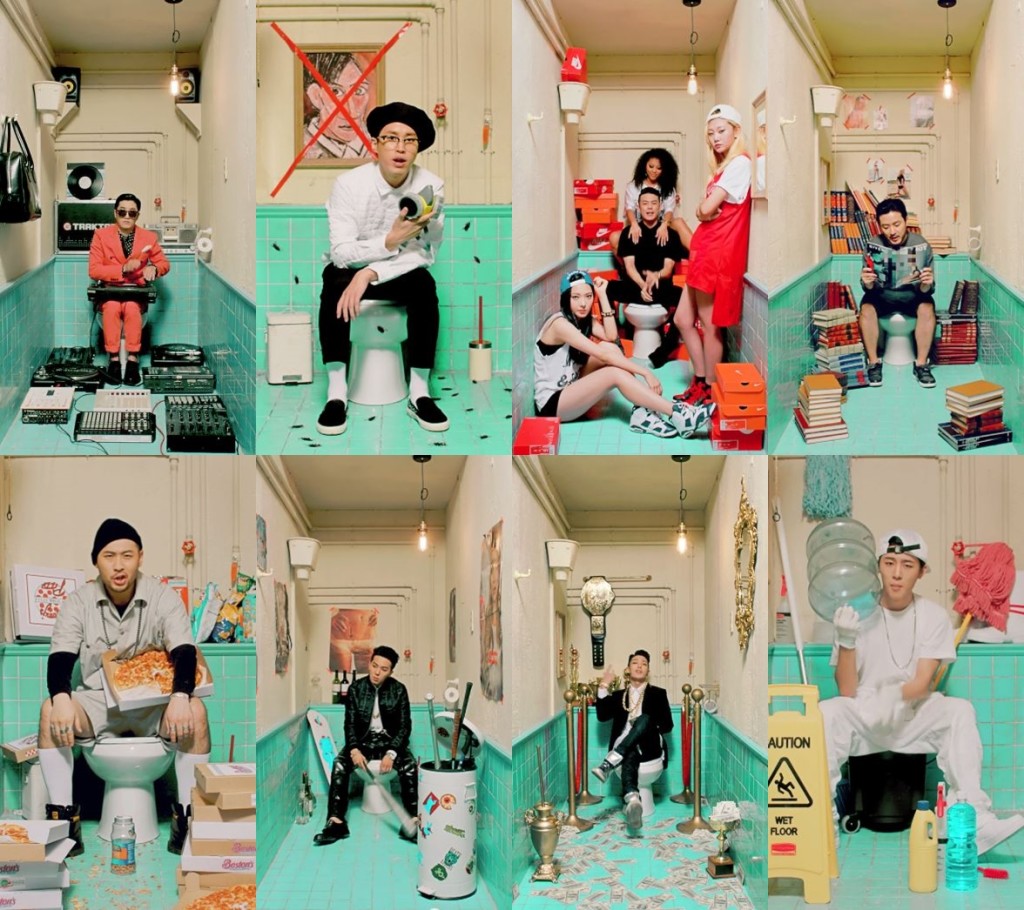
Upon listening to “Rosario,” however, you could also see it as the 2021 version of Epik High’s 2014 Holy Grail collaboration “Born Hater” – another charismatic comeback against the media, malicious smear campaigns, and online public hate threatening to bring them down.
Fans familiar with the release may have noticed this MV also being shot in vertical portrait mode, with each artist given their individual space to perform. It could further allude to the ease of access we have in viewing a public figure, via our phone screens always at hand.
Although, the set this time consists of hotel rooms and classical portraits, the latter blurring the line between fragmentation and reality. By the MV’s end, CL settles back into the portrait, barely distinguishable from one or the other. No doubt the trio invited CL and Zico to not only contribute musically, but make a statement through their experiences as public figures. Nonetheless, it’s an interesting choice to pair these two particular artists together, considering how distinct their struggles have been throughout their careers.
But first things first, let’s break down the meaning behind the title “Rosario.” Essentially, it’s the Italian phrasing for “Rosary” – a Catholic set of prayers, as well as the string of beads used to count consecutive prayers. Simply put, Catholics pray the rosary as a means to ask God for a special favor, or to thank God for new blessings. The process begins with the Apostle’s Creed, and winds through its process to end with the Hail Holy Queen — an acknowledgment to the Blessed Mother Mary that their sin might be great, but the promises of Christ are greater. Altogether, Mother Mary can be seen as a kind of bridge to Christ, and the eternal blessings that He can provide.
How, then, does a significant Catholic prayer provide the foundation for a hip-hop track? You’ll have to consider the very purpose of prayer.
On one hand, prayers are meant to lift the subject up, whether it be the self or another. However, they are also recited in the face of sadness, loss, or even resentment regarding another. They’re either timely or too late, loving or spiteful. Coupled with the implied jabs towards the power of the media and agencies against the artist, and we have an interesting mix of religious and modern motifs. After all, there is a clear opposite present: prayers are often delivered to those envisioned as a saint; meanwhile, the voices around us can tear them down anytime. It’s this dichotomy that “Rosario” artistically explores, visually and conceptually.
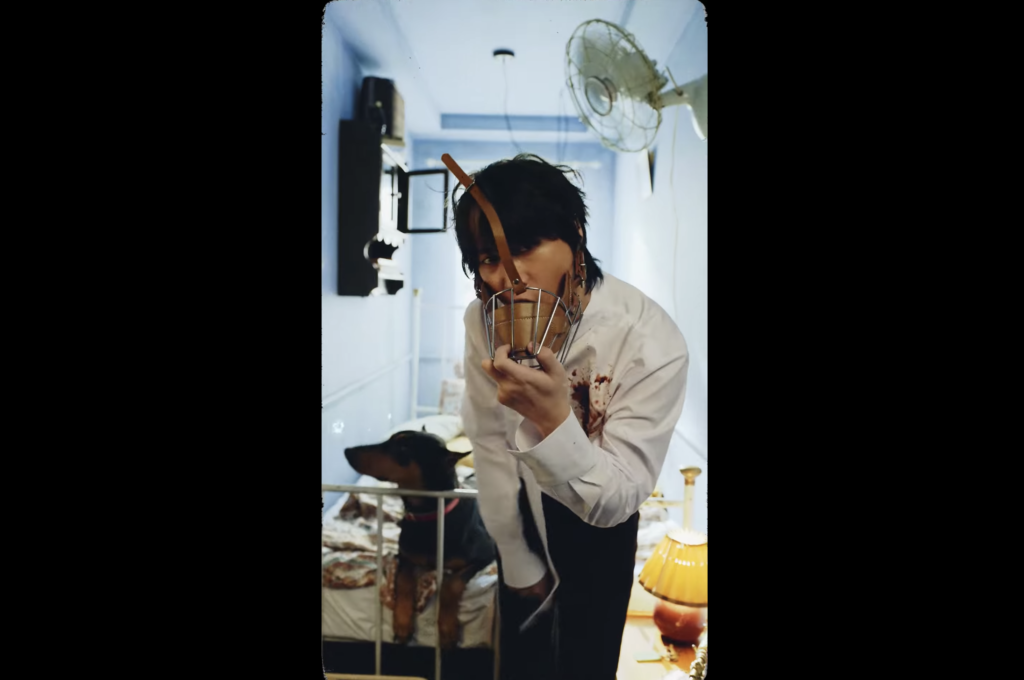
This symbolism is strongly recognized throughout the music video, which was rife with details. Both set and plot worked well together to bring Epik High’s message alive, starting from the moment Tablo scares Tukutz (and maybe the viewers too) with a vivid heart wound.
From the get go, Tablo wastes no time in making his direct point: how the pain felt from his suffering is akin to the impact of a lethal gun shot. Simply alluding to this is one thing, but actually seeing it visually resonated throughout the video and doubled the impact of his performance.
Up until this point, we’re presented with just two backgrounds: the rustic, dimly lit hotel hallway and the blue lit bedroom with Tablo and a restrained dog. The key word being “restrained” – another mirror shot representing the voice that can’t speak up for itself. Both Tablo and the dog are open targets for whatever judgments — praise or criticism — they might receive, and all they can do is “rest” on the bed that looks anything but cozy. It brings forth the question: how is anyone put in this position expected to rest, when bound and injured in such ways? Though Tukutz, most likely symbolizing the ruthless antagonist, pulls out his gun and shoots at Tablo – showing how quick and fast it can be on their part to shoot and move on.
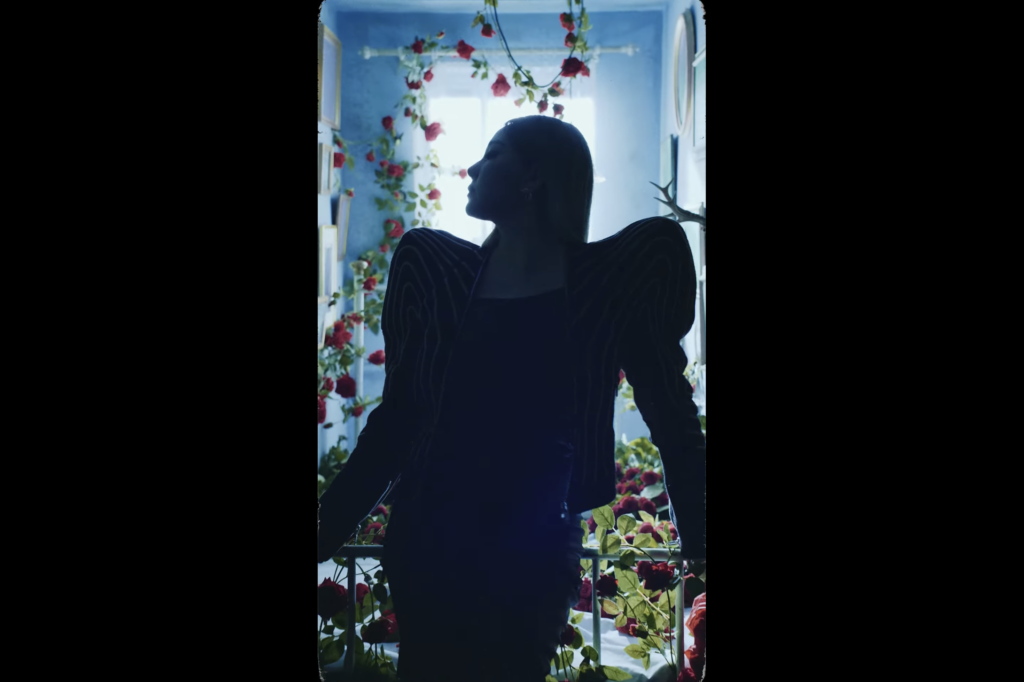
In between verses, CL’s beautiful voice weaves in and out as she sings the pre-chorus. The following lyrics highlight the concept of a rosary prayer, ultimately defying the need for them.
In the face of attacks and fear, CL turns away from pity or submission, choosing instead to rise above it all in her own way. On one hand this is taking back her ownership once lost through her journey; on the other hand, it’s a nod to the constant power battle that occurs between the world and self. To zero in on one specific context, it does ring true that boundaries in this music industry are quite fuzzy.
While valid critique or genuine opinions should be welcomed, smear campaigns have increasingly gone above and beyond in harming artists – as both the public figures and vulnerable humans that they are. It can sometimes get to the point where they feel bound to public opinion, with little to no personal freedom. Not to mention how quickly it always happens, seemingly overnight. Entitlement may warrant those to mask such input under “genuine concern,” but CL whisks all of that away, claiming back her own life and direction:
Do what I wanna, say what I wanna
Come on, bite it and talk
Don’t want your prayers, don’t want your roses
Ain’t no one dyin’ today
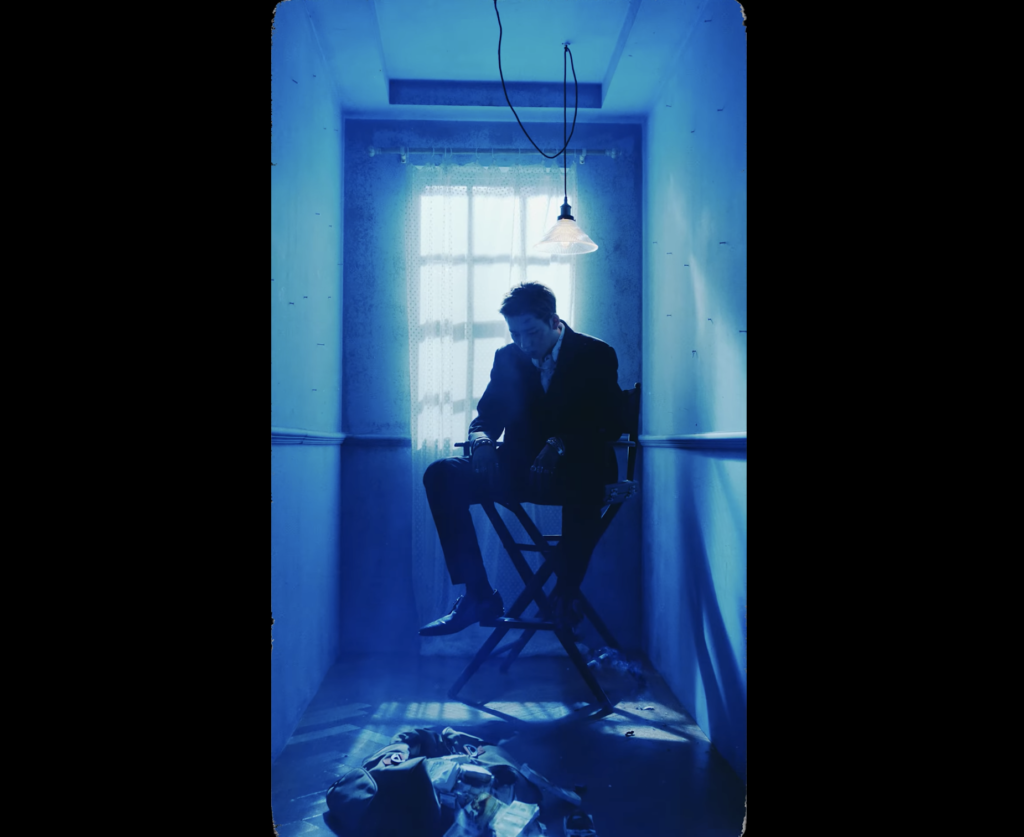
This message continues on as Zico and Mithra individually perform their part, storytelling in their own distinct ways. The theme of rising back up and claiming one’s freedom is ongoing in Zico’s verse, as he boldly speaks his story and jabs at malicious comments and rumors.
This harkens back to his 2019 release “Extreme”, where he specifically touched on the “golden phone” scandal – which rendered him to be even more vulnerable to the public. Whether this led to his desired outcome or not has drawn some skepticism, but this time he changes the tone to powerfully comeback at what used to put him down. This is further portrayed visually once he enters down the same hallway as Tukutz, roughly beaten up but hands full with bags of money.
Contrary to Tukutz’ initial uncertainty, Zico is confident and undeterred as he walks down the hallway, only to enter a space where he burns the briefcases filled with money. In a way, the money can represent the profits he made from stardom — and simultaneously the baggage he’s wrought on from it all. Burning it up shows his very confidence and survival is no longer connected to this double-edged sword, signaling a brand new start.
Lastly, Mithra takes the spotlight to deliver an insanely poetic verse, looking super boss with his gang behind him. Rather than merely touching on his empowerment, he acknowledges having to always keep your guard, emphasizing the ongoing battle between either side. To not fall for bait, and to not be swayed so easily by the changing currents.
Yet, he also maintains his cold charisma, proving that he won’t be backing down against the howl of “rabid dogs.” Personally, the most telling excerpt of his verse is towards the end, where he gives a nod to the ongoing, underlying struggle:
I raised a set of stairs with the stones you threw
And now my voice steps over walls and across borders
To me, you’re dust in my eyes
Nothing to gain from dusting you off, it’s a waste of time
Yeah, I know even if I spend a lifetime to build a tower, the world will crumble it
But again I add another stone

Through crisp, powerful lines, Mithra accepts this tumultuous journey, but chooses to rise above it again and again. Despite knowing what’ll come in the future, he keeps forging on, not letting the past hold him down (and even smashing through a door to keep going).
By its end, the MV takes a slightly different turn as it shows an ironic outcome: despite what Tablo (and other artists) have powerfully proclaimed, in the end all it took was the gun to shoot him down. Disguised as a remote meant to skip channels, it’s a profound way to lift the veil on how simple it is to tear someone down… and, ultimately, how it can sometimes be too late to lift a rosary for a soul who actually needs it. Will we wait until they’re reduced to merely art? Or voices, stored as digital music files?
Altogether, “Rosario” has us deeply consider the impact of words and judgment, public versus artist, and ultimately world versus self in the face of survival.
(YouTube. Catholic.org, Dummies. Images via Endeavor Group Holdings)
